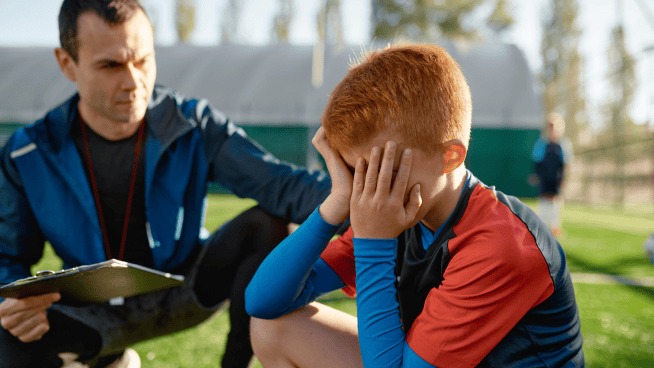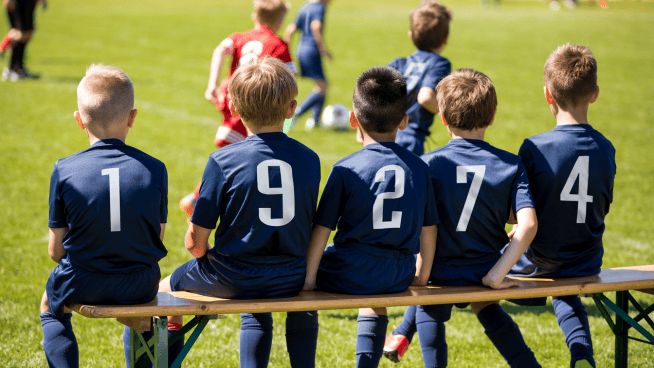What’s Missing From the Female Athlete’s Diet, Part 1: Calories
Typically, when athletes lack results despite increasing their training intensity, we label it a performance plateau. This isn’t always the case. Sometimes the problem is that something important is missing from their diet.
Serious female athletes have a reputation for being meticulous with their diets. But research has shown that this cautious approach is not necessarily a safeguard. Many female athletes lack essential nutrients, holding them back from reaching their full athletic potential. In this series, we will look at each of the most common missing nutrients.
In this first article, we’ll discuss the fuel for our engines and the wood for our fires—calories. Without adequate calories, we cannot get where we want to go or do what we want to do. Yet female athletes often lack calories, for both unintentional and intentional reasons.
To achieve a specific body size or weight
When someone is calorie-deficient, body image is usually the first culprit. The common belief that a lighter athlete is a faster athlete is false, yet it affects runners, cyclists, swimmers, gymnasts, ski jumpers and lightweight rowers.
Weight loss can lead to performance gains only if someone has excess body fat. Normal or underweight females who restrict calories in attempts to lose weight increase their risk for injury, illness, and a host of nutrient deficiencies. They also often lose the muscle mass they need to perform at their best. Remember, muscle weighs more than fat, so a “heavier” athlete may be able to generate more power than a lighter athlete.
In severe cases, females can develop disordered eating behaviors and the female athlete triad. (See Are you at risk for an eating disorder?)
Many females fail to see accurate reflections of their bodies when they look in the mirror. You can’t determine body fat just by looking. If you believe you have excess body fat, consider visiting a health care professional to analyze your body composition. If a health care professional determines that you can safely lose weight, go slow. Aim for about one pound per week to ensure that you do not lose muscle mass. If a health care professional determines that you do not have excess weight to lose, listen to their advice.
Not consuming enough calories to cover those burned during exercise
Unfortunately, some athletes unknowingly deprive themselves of needed calories. Hunger is not always a good indication that you need to eat. One research study revealed that when female runners increased their calorie burn by 20% during a 40-week marathon training program, they failed to eat significantly more food. (Ask the Experts: How Many Calories Should I Eat?)
Signs that you’re not eating enough calories to support your training include:
- Fatigue
- Inability to finish workouts
- Increased time needed to fully recover from workouts
- Feeling irritable
- Changes in sleeping habits
- Weight loss
Athletes who inadvertently limit calories face the same health consequences as athletes who limit them on purpose. In order to avoid injury and illness, you need to stay in energy balance. This means you must eat as many calories as you burn. To do this right, you may need to see a sports dietitian to calculate your exact calorie needs, or you may need to pay closer attention to your hunger cues and energy levels during training. Don’t be afraid to add a snack to your day if you are experiencing increased fatigue during your workout or throughout the day. Something simple like a peanut butter and banana sandwich, a bag of homemade trail mix, or a fruit and yogurt parfait can increase energy levels and lead to huge performance gains.
When it comes to performing at your best, the focus should not be on your bathroom scale. We know that restricting calories to lose weight does not always have a positive outcome. The ultimate goal is to win, right? Eating enough calories to completely fuel your toughest training sessions will allow you to train harder and compete harder—and keep you one step ahead of your competition.
Stay tuned for the next installment of “What’s Missing from the Female Athlete’s Diet?”
Source
The Endurance Paradox: Bone Health for the Endurance Athlete, by Thomas Whipple and Robert Eckhardt.
Photo: nutritious-n-delicious.blogspot.com
RECOMMENDED FOR YOU
MOST POPULAR
What’s Missing From the Female Athlete’s Diet, Part 1: Calories
Typically, when athletes lack results despite increasing their training intensity, we label it a performance plateau. This isn’t always the case. Sometimes the problem is that something important is missing from their diet.
Serious female athletes have a reputation for being meticulous with their diets. But research has shown that this cautious approach is not necessarily a safeguard. Many female athletes lack essential nutrients, holding them back from reaching their full athletic potential. In this series, we will look at each of the most common missing nutrients.
In this first article, we’ll discuss the fuel for our engines and the wood for our fires—calories. Without adequate calories, we cannot get where we want to go or do what we want to do. Yet female athletes often lack calories, for both unintentional and intentional reasons.
To achieve a specific body size or weight
When someone is calorie-deficient, body image is usually the first culprit. The common belief that a lighter athlete is a faster athlete is false, yet it affects runners, cyclists, swimmers, gymnasts, ski jumpers and lightweight rowers.
Weight loss can lead to performance gains only if someone has excess body fat. Normal or underweight females who restrict calories in attempts to lose weight increase their risk for injury, illness, and a host of nutrient deficiencies. They also often lose the muscle mass they need to perform at their best. Remember, muscle weighs more than fat, so a “heavier” athlete may be able to generate more power than a lighter athlete.
In severe cases, females can develop disordered eating behaviors and the female athlete triad. (See Are you at risk for an eating disorder?)
Many females fail to see accurate reflections of their bodies when they look in the mirror. You can’t determine body fat just by looking. If you believe you have excess body fat, consider visiting a health care professional to analyze your body composition. If a health care professional determines that you can safely lose weight, go slow. Aim for about one pound per week to ensure that you do not lose muscle mass. If a health care professional determines that you do not have excess weight to lose, listen to their advice.
Not consuming enough calories to cover those burned during exercise
Unfortunately, some athletes unknowingly deprive themselves of needed calories. Hunger is not always a good indication that you need to eat. One research study revealed that when female runners increased their calorie burn by 20% during a 40-week marathon training program, they failed to eat significantly more food. (Ask the Experts: How Many Calories Should I Eat?)
Signs that you’re not eating enough calories to support your training include:
- Fatigue
- Inability to finish workouts
- Increased time needed to fully recover from workouts
- Feeling irritable
- Changes in sleeping habits
- Weight loss
Athletes who inadvertently limit calories face the same health consequences as athletes who limit them on purpose. In order to avoid injury and illness, you need to stay in energy balance. This means you must eat as many calories as you burn. To do this right, you may need to see a sports dietitian to calculate your exact calorie needs, or you may need to pay closer attention to your hunger cues and energy levels during training. Don’t be afraid to add a snack to your day if you are experiencing increased fatigue during your workout or throughout the day. Something simple like a peanut butter and banana sandwich, a bag of homemade trail mix, or a fruit and yogurt parfait can increase energy levels and lead to huge performance gains.
When it comes to performing at your best, the focus should not be on your bathroom scale. We know that restricting calories to lose weight does not always have a positive outcome. The ultimate goal is to win, right? Eating enough calories to completely fuel your toughest training sessions will allow you to train harder and compete harder—and keep you one step ahead of your competition.
Stay tuned for the next installment of “What’s Missing from the Female Athlete’s Diet?”
Source
The Endurance Paradox: Bone Health for the Endurance Athlete, by Thomas Whipple and Robert Eckhardt.
Photo: nutritious-n-delicious.blogspot.com












